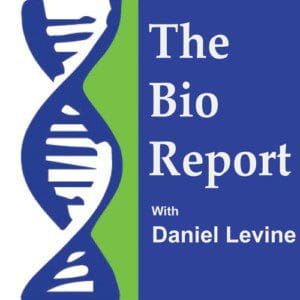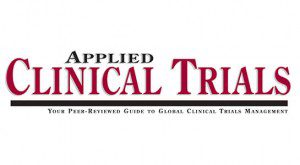
Krystal Biotech Names Genzyme’s Chien Chief Commercial Officer
Gene therapy developer Krystal Biotech (NASDAQ: KRYS) has appointed Jennifer Chien to the newly created role of chief commercial officer. She comes to Pittsburgh-based Krystal from the Genzyme unit of Sanofi (NYSE: SNY), where she was vice president and head of genetic diseases.

Orasis Developing Eye Drops as Alternative to Reading Glasses
As people age, the ability of their eyes to focus on objects near to them weakens. The condition, known as presbyopia, affects more than 1.8 billion people worldwide. Though reading glasses provide a solution to the problem, Orasis Pharmaceuticals is developing a corrective eyedrop it says will provide an alternative.

Immuneering Raises $20 Million for New Drug-Discovery Effort
Venture capitalists are betting $20 million that technology from Immuneering Corp. will enable it to develop medicines aimed at molecular targets that have long tantalized and eluded drugmakers.

2020 Could be a Defining Year for SQZ Biotech
If 2019 was a breakthrough year for Watertown, Mass.-based SQZ Biotech, 2020 could be a defining year as the company tests is first antigen-presenting cell asset in the clinic to treat solid tumors that are HPV positive.

Getting to the Root of the Disease: Developing Drugs Against the Hard-to-Target Wnt Pathway
“Successful drugs targeting the Wnt pathway haven’t been developed yet because the Wnt pathway is so essential to all cells,” commented Yusuf Yazici, MD, Chief Medical Officer of Samumed. “Previous drugs in development have shown many off-target effects at effective doses, rendering them unsafe for use.”

After big year, RNAi drugmakers compete to prove what comes next
Two decades passed between the discovery of RNA interference, a natural mechanism of gene control, and approval of the first drug built on the Nobel Prize-winning science.

RNA Therapies Emerge for Genetic Diseases
Some biopharmaceutical enterprises are even specializing in specific mechanisms of action by targeting and modifying RNA through temporary and ongoing treatment to avoid safety concerns that may arise from permanent gene therapy alterations. In this article, Daniel de Boer, CEO at ProQR Therapeutics, will discuss how they are advancing RNA therapies in retinal disorders.
Bay Area Researchers Key on Blood Plasma to Fight Age-Related Diseases
A year ago, the FDA issued a warning to consumers to stay away from unscrupulous clinics that offered blood taken from young people to use as an anti-aging remedy. But one Bay Area biotech company is actually gathering the scientific evidence and conducting well-designed studies, under the approval of the FDA.
